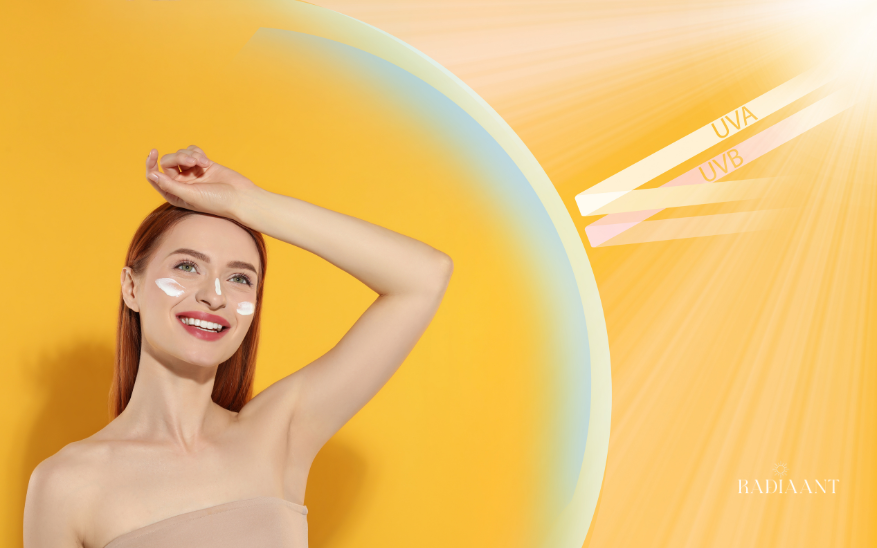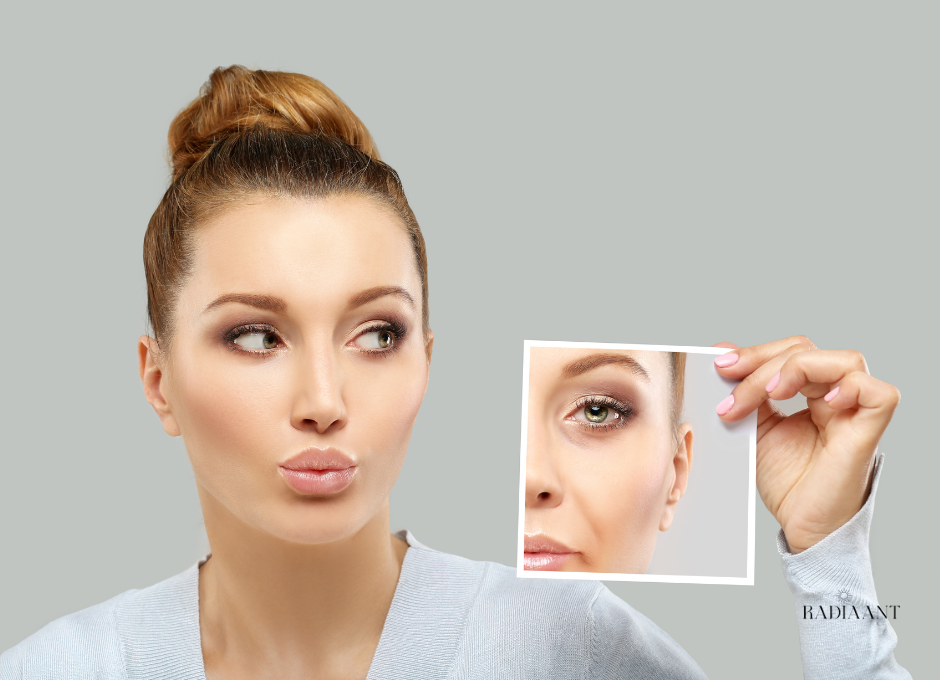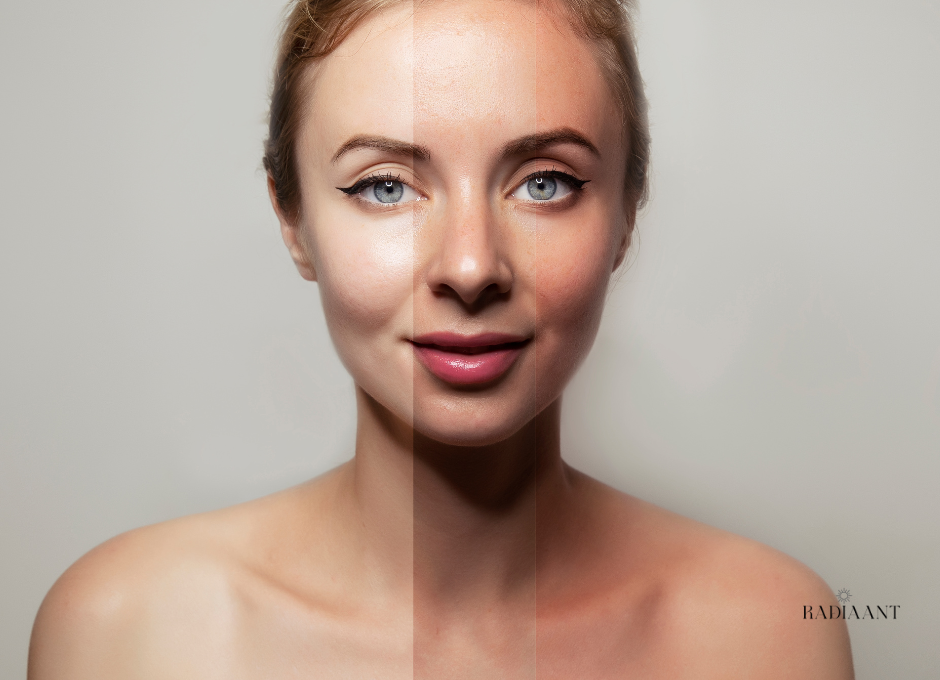Why many of us don’t use sunscreen during winter when the sun is always out there? Sunscreen isn’t just a summer accessory it is a year-round necessity. Not only does it shield us from painful sunburns and premature ageing, but it is also the best defence against skin cancer. Plus, by protecting our skin, sunscreen helps maintain a youthful, radiant complexion for the long haul.
Sunscreen is the most important skincare product that everybody should have in their skincare routine and kit. It is vital for our long-term skin health. In this blog, we will look into the many reasons why sunscreen is important for our skin, things to check before purchasing your sunscreen and side effects of sunscreen.
Key Takeaways
Why Sunscreen is Important for Skin?
Sunscreen is a shield that protects our skin from damage in many ways as it prevents sunburn, skin cancer, premature ageing, skin tanning, skin decoloration and from harmful UV rays. Wearing sunscreen every day is one of the best and easiest ways to protect your skin and keep it healthy in the long run.
1. Protects from Harmful UV Rays

The gradual depletion of the ozone layer has increased our exposure to harmful sun rays. While sunlight is essential for Vitamin D production, it is important to balance this with protecting our health. Exposure to these rays can cause sunburn and skin damage. Sunscreens form a protection layer on our skin that prevents these UV rays from entering our skin to some extent.
2. Prevents The Signs of Premature Ageing

We all want to look younger and have healthy glowing skin for as long as we live. This is one most convincing reasons why we should wear sunscreen as a necessity in our daily lives.
Exposure to UV rays accelerates the ageing process of the skin, leading to wrinkles, fine lines, and sagging. Sunscreen helps to slow down this process by preventing UV-induced damage to the skin’s collagen and elastin fibres.
3. Reduces Risk of Skin Cancer
Prolonged exposure to UV radiation is a significant risk factor for developing skin cancer, including melanoma, the deadliest form of the disease. Regular use of sunscreen significantly reduces this risk by providing a barrier against UV rays. By applying sunscreen daily, you actively protect yourself from the harmful effects of sun exposure and decrease your chances of developing skin cancer.
4. Prevents Tanning

While some people may enjoy a sun-kissed glow, tanning is actually a sign of skin damage. Sunscreen blocks the UV rays that are responsible for triggering the skin’s production of melanin, the pigment that causes tanning. By wearing sunscreen, you can maintain a more even skin tone and avoid the harmful effects associated with tanning, such as sunspots and uneven pigmentation.
5. Prevents Sunburns

Sunburns are not only painful but also indicate significant damage to the skin. Excessive exposure to UVB rays from the sun can lead to various skin issues. These may include thinning of the skin, making it more translucent, and increased visibility of bruises. Sunburns can cause peeling, swelling, redness, hives, and itching.
6. Prevents Decoloration
Decoloration of skin means, dark spots, hyperpigmentation, and uneven skin tone. Regular use of sunscreen helps prevent discoloration by protecting the skin from the sun’s harmful effects. By maintaining a consistent sunscreen routine, you can keep your skin looking clear, smooth, and evenly toned.
7. Sunscreen is Your First Cosmetic

Sunscreen isn’t just a skincare product; it’s the foundation of a healthy skincare routine. Like brushing your teeth is necessary, wearing sunscreen should be a non-negotiable step in your daily regimen. It makes a layer of protection against environmental damage and sets the stage for healthier, more beautiful skin over time. So, think of sunscreen as your first and most important cosmetic product, that is essential for maintaining the health and beauty of your skin.
Things to Check Before Buying the Best Sunscreen for Your Skin
Before purchasing sunscreen, it is important to consider several factors to make sure you are selecting the best for your skin. Here we have created a checklist for you, to make things easier.
- Choose a sunscreen with a broad-spectrum SPF of 30 or higher to protect against both UVA and UVB rays.
- Choose a water-resistant sunscreen that maintains its effectiveness for a specified time while exposed to water or sweat.
- Not every sunscreen is for every skin type. So, consider your skin type and look for sunscreen formulations that cater to your skin’s needs, such as oil-free or non-comedogenic options for oily or acne-prone skin.
- Check the ingredient list for active ingredients like zinc oxide, titanium dioxide, avobenzone, or octocrylene, which provide sun protection. Also, consider any potential allergens or irritants if you have sensitive skin.
- Choose a sunscreen with a texture and formulation that you enjoy using. Options include lotions, creams, gels, sprays, sticks, and powders.
- Check the expiration date to ensure the sunscreen is still effective.
- Read reviews from other users or seek recommendations from dermatologists or skincare experts to find a sunscreen that suits your skin type and preferences.
- Consider how often you’ll need to reapply the sunscreen.
A Little More About Sunscreen
Now let’s answer some more questions that might come your way when you think about sunscreens.
Do Different Skin Types Have Different Sunscreen?
Yes, different skin types may benefit from different types of sunscreen formulations. For example, individuals with oily or acne-prone skin may prefer oil-free or non-comedogenic sunscreens, while those with sensitive skin may opt for mineral sunscreens with gentle ingredients.
When Should I Apply Sunscreen?
Sunscreen should be applied generously at least 15 minutes before sun exposure to allow it to fully absorb into the skin and provide effective protection.
Are Mineral Sunscreens Better Than Chemical Sunscreens?
Mineral sunscreens, which contain zinc oxide or titanium dioxide, are often considered better for sensitive skin types because they are less likely to cause irritation. They work by sitting on top of the skin and physically blocking UV rays. Chemical sunscreens, on the other hand, absorb into the skin and work by absorbing UV rays and converting them into heat, which is then released from the skin. Both types of sunscreens are effective, so the choice between them often comes down to personal preference and skin sensitivity.
Conclusion
In conclusion, sunscreen is a skincare essential that should not be overlooked, regardless of the season. Its protective benefits extend far beyond preventing sunburns, helping to ward off premature ageing, reduces the risk of skin cancer, and maintains a healthy complexion. By making sunscreen a non-negotiable part of your daily routine, you’re investing in the long-term health and beauty of your skin. So, don’t forget to slather on that SPF and embrace the sun safely!

